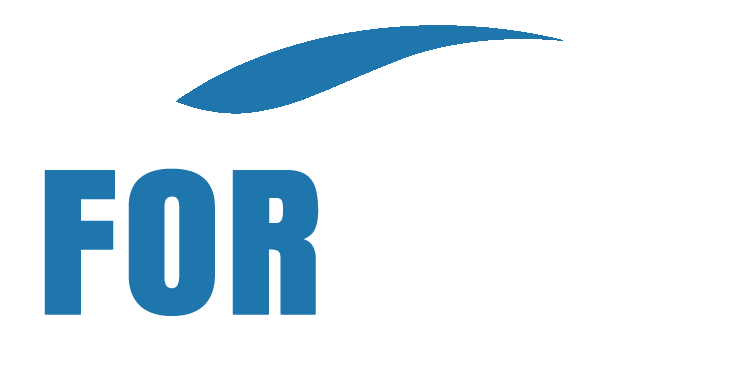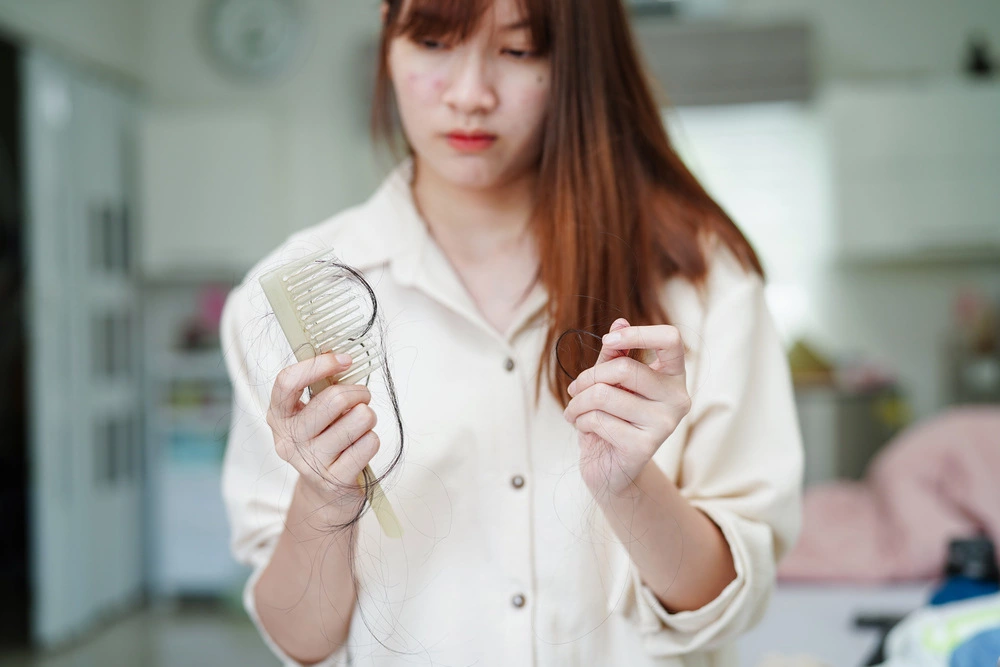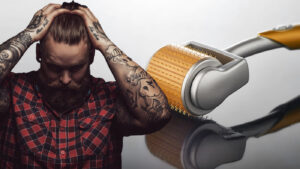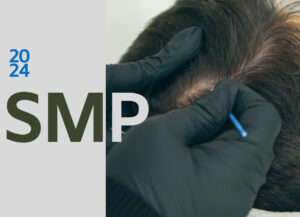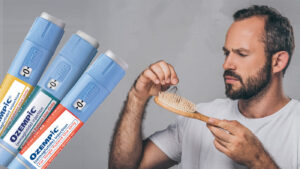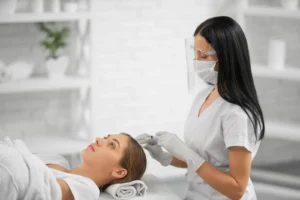Announcement
This article will investigate and explain the potential correlation between stress and changes in hair texture, aiming to educate readers on how stress might impact hair health and texture.
Introduction
Stress is an essential element to survival. Historically, stress has helped people identify a rock over a lion and stay alive. But today, stress comes in too many forms, and both direct and indirect stress can cause a lot of harm.
Can stress change your hair texture? Yes. There are several things that impact the quality and strength of your hair, and stress is one of them. When your body responds to stress, it can sometimes redirect vital nutrients to more important functions, leaving your hair wanting. It can also cause issues with blood flow and relaxation, making it harder for your hair follicles to follow a regular growth cycle.
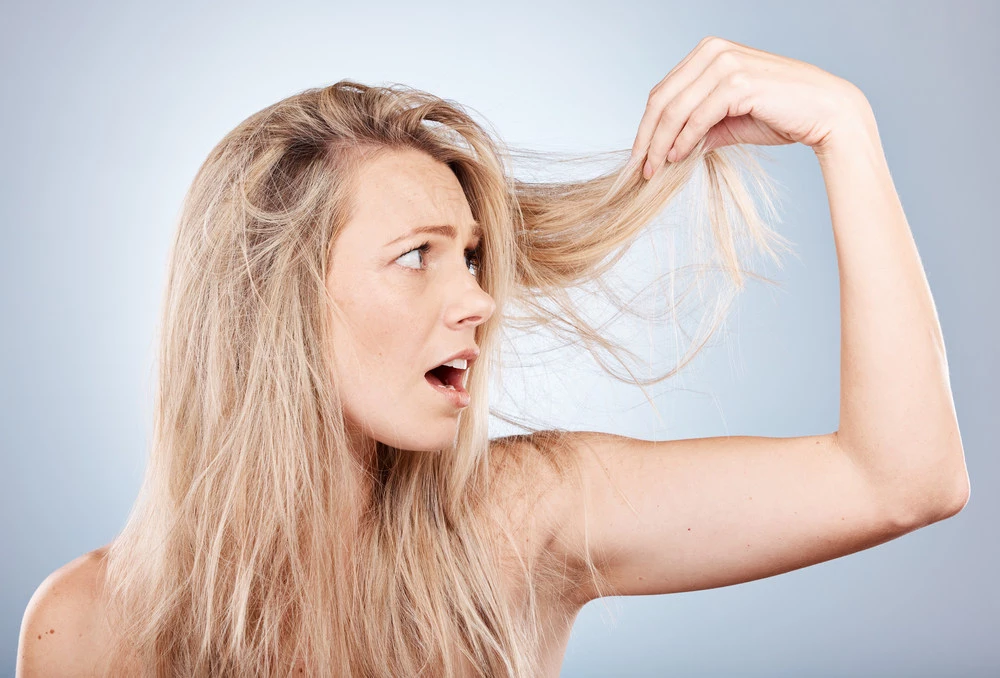
Potential links between stress and changes in hair texture
The direct impact of stress on hair follicles
Your hair is always growing, and hair follicles are incredibly sensitive to minor changes in hormones or oxidative stress.
- Hormonal changes triggered by stress, pregnancy, exercise changes, menstruation, or anything in between can trigger changes to your hair follicles and the strength and growth of your hair.
- Oxidative stress can directly impact the strength of your hair follicles.
Indirect effects of stress on hair
Can stress change hair texture if it’s not direct stress? Yes, your hair follicles are equally sensitive to minor fluctuations and things like nutrient levels and blood circulation.
The indirect effects of stress come in many forms.
For example:
Someone who is incredibly stressed at work might struggle with anxiety. One of the symptoms of anxiety is insomnia. So when an individual is struggling to sleep, they are more likely to consume an average of 300 calories more than what they need. This extra eating is rarely Brussels sprouts and spinach but rather fatty chips and chocolate, high in sugar and salt.
Someone else might be stressed because of a new member of the family, and as a result of being preoccupied and stressed, they stop eating things rich in Vitamin E, protein, B vitamins, or zinc. When this happens, there is an indirect effect of stress that can hinder circulation to the scalp as well as nutrients necessary to regulate hair growth cycles.
- Nutritional deficiencies that come from stress-related eating habits can impact sebum production and the health of your scalp and hair follicles.
- Reduced blood circulation to the scalp because of nutritional deficiencies or illness can equally impact the health of your hair.
Tips for managing stress and maintaining healthy hair
Prioritizing self-care
To help thwart stress and prevent the damage it can cause, it is important to prioritize self-care.
Mindfulness and meditation
Start by taking moments out of your day to pause. Some might call this meditation, and as you learn to pause more deeply, you will reap more benefits, but when you first begin, self-care does not have to take up hours of your day.
Pauses throughout the day to reflect on five things for which you are grateful or eight things you need to be happy today can help put you in a calmer, more peaceful frame of mind.
Being mindful of how you feel can go a long way toward overcoming stress because it helps you identify your emotions instead of running from them or avoiding them. This can empower you to accept how you feel, what is contributing to how you feel, and which parts of your emotions are within your control to change.
Exercise
Exercise is one of the most important ways to manage stress and maintain healthy hair. When you exercise, whether it is vigorous exercise or calming yoga, you give your body a chance to release calming neurotransmitters which reduce pain levels and boost mood.
This helps you remain mindful of what really matters in life, what stress is unnecessary, and how to control the stress that remains.
Tip: When you exercise, take great care of your hair. You might sweat a lot, but a light brush or comb can move those natural oils down the length of your hair to help keep it moisturized. If you put your hair up while working out, be sure to use soft scrunchies or other hairbands that don’t constrict your hair too much.
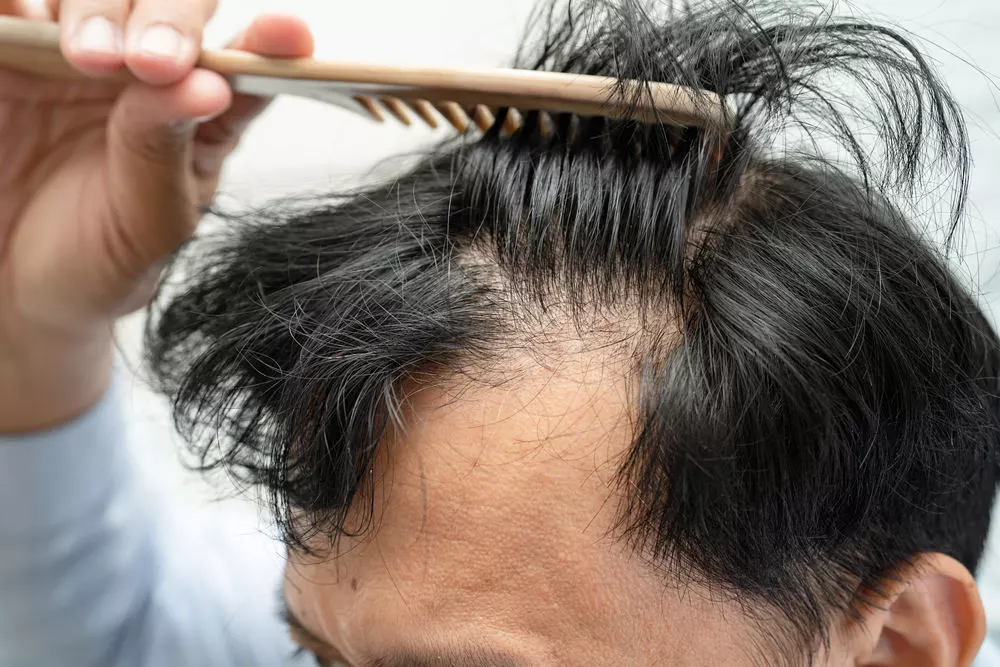
Other self-care
It is important to find opportunities during your schedule to actively control your stress. How you do this is very personal, and it might take some trial and error with different techniques before you find what works best for you.
Self-care might also include:
- Staying hydrated
- Eating the right foods
- Learning to say “no”
- Cleaning or decluttering an area in your home
- Calling a friend
- Going for a walk
- Yoga
- Meditation
- Painting
- Gardening
- Reading a good book
Nutritional tips: foods for hair health
Stress changes hair texture, and not for the better. As such, if you are experiencing stress and hair texture changes, you’ll want to look toward what you eat to see about improving your hair quality and strength.
Essential nutrients play an important role in regulating hair growth cycles and ensuring the strength of your tresses. If you are experiencing problems with hair quality, it could be indirect stress from nutritional deficiencies like:
- Protein
- Zinc
- Vitamin A
- Vitamin C
- Vitamin B complex
- Vitamin E
- Vitamin D
You can supplement with healthier, whole foods or enriched cereals and juices. The best ways to boost your hair health is to integrate:
- Dairy
- Eggs
- Organ meat
- Lentils
- Salmon
- Blackberries
- Sunflower seeds
- Legumes
- Broccoli
- Spinach
- Strawberries
Hair care routine recommendations
Can stress affect your hair texture? Absolutely, and that’s why it’s important to follow the right hair care routine.
- First, avoid washing your hair every day. Doing so will strip your hair and your scalp of the proteins and oils that you need. This can leave your hair and your scalp dry and itchy. Two or three times per week is the maximum you should be washing your hair.
- When you wash your hair, look for something free from sulfates. Be prepared to read labels in order to avoid frizz and dry hair.
- When you condition your hair, coat everything from the beginning to the end, but try to avoid directly applying conditioner to your roots and your scalp, as this can result in an oily and itchy scalp.
- Consider using a leave-in conditioner, especially to mitigate the impact of stress on hair texture. Leave-in conditioners can help you incorporate hydration and keep your hair strands stronger so they are less prone to breakage.
- Finally, remember that friction will damage your hair and that friction can come from rubbing towels over your hair to absorb the moisture, using a blow dryer, or utilizing any type of hair-drying straighteners or curling irons. Your best bet is to let your hair air dry naturally, especially before you try to brush it or style it.
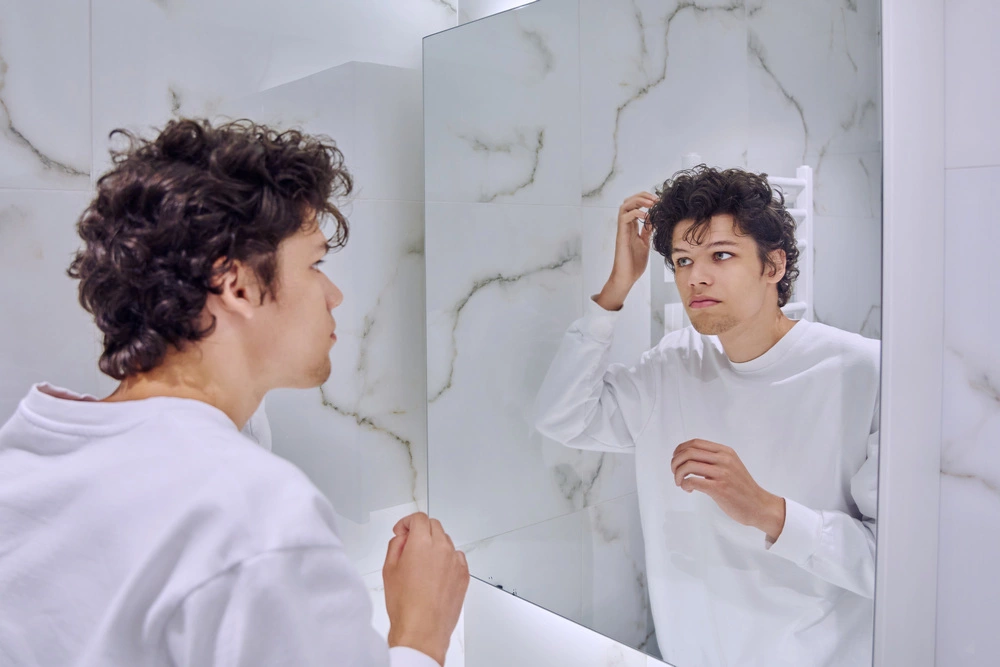
Seeking professional help
Even if you follow hair care routines and make sure to eat the right diet, you might still need to seek professional help. Don’t be afraid to ask your primary care physician, “Can stress change your hair texture?” and what they can do to help.
Medication adjustment
If you are still experiencing hair loss or damage, you can reach out to your primary care physician about whether your medications might be the cause of such changes. In some cases, stress and prescription medication work hand in hand, resulting in stress and hair texture changes that are actually the result of medications. In such situations, working with a doctor can help you target the medications that are problematic and change them.
Supplements
Moreover, when you work with a professional to tackle how stress changes hair texture, you can get individualized care regimes, supplements for nutritional deficiencies, and products to help bring hair health back to normal. A therapist or doctor might be able to help you decide which supplements will reverse things like vitamin deficiencies and improve sleep, which could be the basis of high stress.
Summing Up
Can stress affect your hair texture? Absolutely. Stress can directly or indirectly change nutrients that provide your hair with strength and shine. Stress can affect blood circulation and damage the sebum or hair follicles. However, if you are struggling with stress and hair texture changes, there are things you can do.
Focus on stress management and self-care first and foremost. This will encourage healthier hair. Try to boost your diet, at the very least, with supplements. Getting essential vitamins will help with your overall health and improve hair from the inside out.
